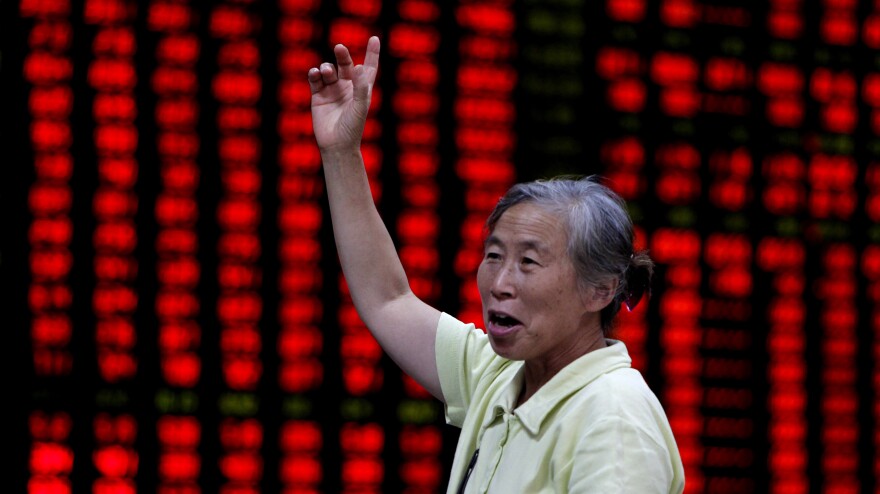We told you this morning about changes announced in China regarding the country's one-child policy, as well as an announcement that it was ending its system of labor camps. But those aren't the only policy shifts by the Communist Party.
China also said Friday that it would loosen restrictions on foreign investment in e-commerce and other businesses, and allow private competition in state-dominated sectors.
The Associated Press says the changes "could be China's biggest economic overhaul in two decades." Here's more:
"Chinese leaders are under pressure to replace a growth model based on exports and investment that delivered three decades of rapid growth but has run out of steam. Reform advocates say Beijing must curb the privileges and dominant role of state companies they say are inefficient and a drag on growth."
Reuters reports that "a reform document released by the Communist Party following a four-day conclave of its top leaders said China would accelerate capital account convertibility, scrap residency restrictions in small cities and townships, integrate urban and rural social security systems and push forward with an environmental tax."
China's economic growth over the past decades has lifted millions out of poverty, and catapulted the country to the world's No. 2 economy after the U.S. But the growth has slowed in the aftermath of the global economic recession. Here's more from Reuters:
"The reforms are part of government plans to shift the main growth drivers away from investment and exports to services and consumption, more in line with developed economies. To achieve that, Beijing wants to encourage millions of rural Chinese to move to live in urban areas, but that requires major land and residency reform that currently are seen as impediments to the plan."
Copyright 2021 NPR. To see more, visit https://www.npr.org. 9(MDIxMDkyNjUxMDE0NDY1Njg1NzRiOTRiYQ000))




